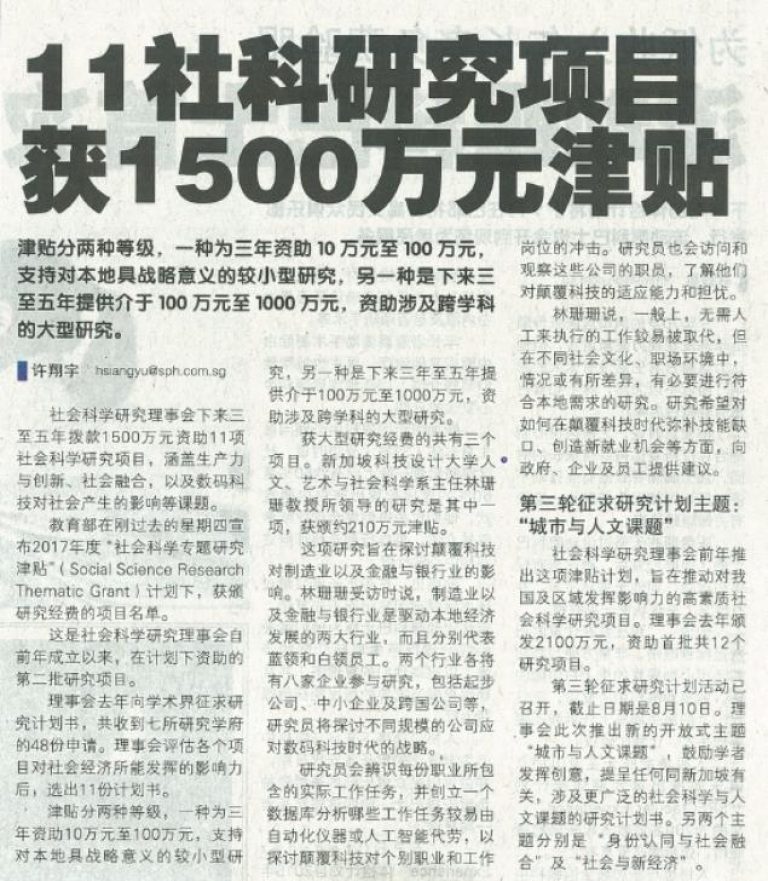11 Social Science Research Projects Received $15 Million Grant (summarised translation)
Lianhe Zaobao, 10 Jun 2018, 11 social science research projects received $15 million grant (summarised translation)
The Social Science Research Council (SSRC) has allocated $15 million to fund 11 social science research projects covering topics such as productivity and innovation, social integration, and the impact of digital technology on society, for the next three to five years.
Last Thursday, the Ministry of Education announced the list of projects that had received the Social Science Research Thematic Grant (SSRTG).
This is the second batch of research projects funded by the SSRC since its establishment the year before.
The SSRTG provides two tiers of funding for supported projects, the first type receives $100,000 to $10 million for up to three years and supports smaller-scale research in areas of strategic relevance; the second type ranges from $1 million to $10 million for over three to five years and supports larger-scale interdisciplinary research.
There were three projects that received the larger-scale research funding, one of which is led by the Singapore University of Technology and Design’s head of Humanities, Arts and Social Sciences Cluster, Professor Lim Sun Sun, that received a $2.1 million grant.
This project seeks to examine the impact of digital disruption on work in the manufacturing, and finance and banking sectors. Prof Lim said that manufacturing, and finance and banking are two major industries that drive local economic development, and are largely represented by blue-collar and white-collar workers. Eight companies from each industry will participate in the study, including start-up companies, SMEs and multinational companies. Researchers will explore strategies for companies of all sizes in response to the era of digital technology.Researchers will identify the actual tasks involved in each occupation and create a database to analyse which tasks can be easily performed by automated instruments or artificial intelligence to explore the impact of digital technology on individual occupations and jobs. Researchers will also observe and interview the employees from these companies to understand their concerns and adaptability to these digital technologies.
Prof Lim said that in general, jobs that do not need to be performed manually are easier to replace, but in different social cultures and workplace environments, the situation may be different, and it is necessary to carry out research that meets local needs. This research project aims to find ways to offset skill gaps and create new jobs in the era of digital disruption, and provide recommendations to the government, companies and employees.

